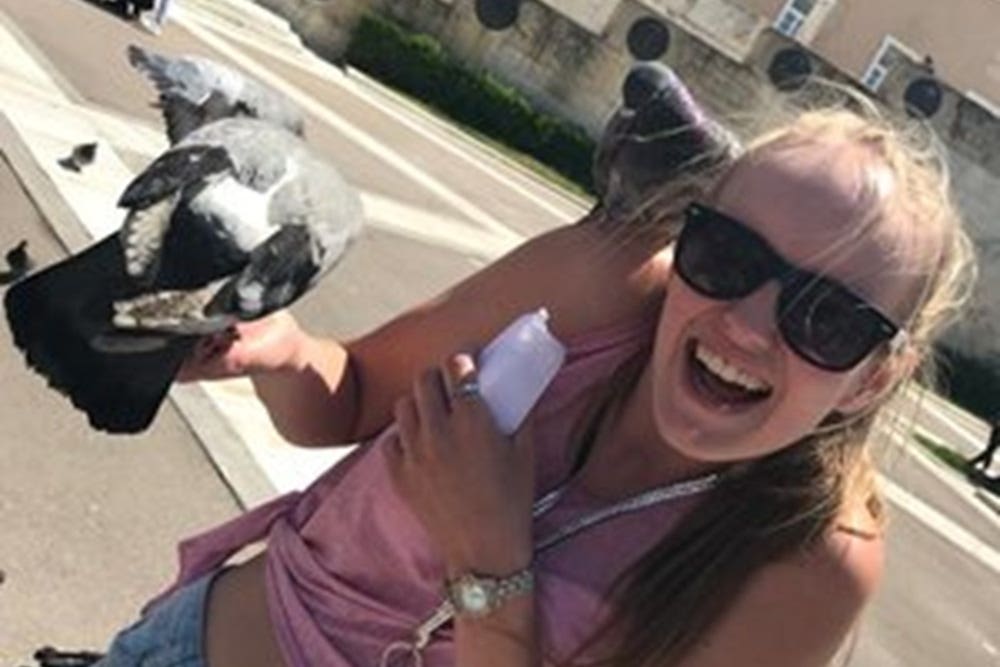Police still have work to do to improve stalking investigations, inquest told
A coroner said at the inquest into the death of Gracie Spinks that Derbyshire Constabulary was ‘not quite there yet’ in terms of improvements.

Your support helps us to tell the story
From reproductive rights to climate change to Big Tech, The Independent is on the ground when the story is developing. Whether it's investigating the financials of Elon Musk's pro-Trump PAC or producing our latest documentary, 'The A Word', which shines a light on the American women fighting for reproductive rights, we know how important it is to parse out the facts from the messaging.
At such a critical moment in US history, we need reporters on the ground. Your donation allows us to keep sending journalists to speak to both sides of the story.
The Independent is trusted by Americans across the entire political spectrum. And unlike many other quality news outlets, we choose not to lock Americans out of our reporting and analysis with paywalls. We believe quality journalism should be available to everyone, paid for by those who can afford it.
Your support makes all the difference.Derbyshire Constabulary still has work to do to improve how officers understand risk and deal with stalking concerns following the death of Gracie Spinks, an officer has said.
Detective Superintendent Darren De’ath, who leads the force’s public protection team, said improvements had been made but the evidence heard at Ms Spinks’ inquest had provoked “some concerns” about the force’s progress.
Ms Spinks was fatally stabbed by Michael Sellers in Duckmanton, Derbyshire, on June 18 2021, months after she reported him to the police for stalking.
Sellers was graded only as low risk and police dismissed a bag of weapons – later linked to Sellers – found near where Ms Spinks was killed a month later, with officers at the time believing the items – including knives, a hammer and an axe – did not pose a risk.
We are in a completely different position to where we were in 2021, albeit I have to accept, listening to the officers giving their evidence, I still don't believe we have achieved what we mean to achieve.
Coroner Matthew Kewley said it was “troubling” that officers involved in the case, who gave evidence, showed “no real appetite or impression that they had really changed their views” on how to assess risk.
Mr De’ath said the force had been inspected since the incident and found to have improved, but said: “We are in a completely different position to where we were in 2021, albeit I have to accept, listening to the officers giving their evidence, I still don’t believe we have achieved what we mean to achieve.
“I concur with your concerns. We have been meeting every evening with the Chief Constable which will continue long after this inquest which will work to make sure we get this right.”
The coroner later said “The force is not quite there yet”, to which Mr De’ath replied: “No, it is not, sir.”
The inquest jury retired to consider its conclusion on Wednesday, with Mr De’ath giving evidence to Chesterfield Coroner’s Court on changes made by the force on Thursday as the jury deliberated.
The jury is due to return its conclusion on Thursday afternoon.
When asked on what further training had been enforced, Mr De’ath said all officers and call handlers were now required to undergo risk assessment training every year and cases are quality assured every month.
Mr De’ath said a stalking policy had not yet been implemented, but this was due to be enforced in the near future.
He said: “Guidance is a term of reference. It is to aid officers and police staff when conducting their enquiries, so they have got somewhere to get best practice.
“Policy is a must do. The reason we don’t always use policy is because it can sometimes constrain people to go a certain way when in those sets of circumstances it may not be the correct way, so we have always relied on guidance to give staff a little bit of movement around their decision-making.”
When asked by the coroner if there will be a stalking policy, Mr De’ath replied: “There will be after this inquest, I assure you of that.”
He later added: “I have already discussed with our deputy chief constable that we need a policy, so those conversations are already taking place and I will be the force lead for stalking.
“That will be done within the next couple of weeks. That is not something that we will sit on.”
Mr De’ath said that officers also “over-relied” on body-worn camera footage and did not take notes as they should have done at the time of Ms Spinks’ death, which would be addressed through the introduction of a policy and mandatory training around note-taking.
Mr De’ath told the inquest that the force had employed a stalking co-ordinator in 2022, who every 24 hours will review all new stalking cases and ensure risk assessment procedures are correctly completed.
But he admitted to Narita Bahra KC, who represents Ms Spinks’ family, that the co-ordinator had not attended any of the inquest, which he accepted “in hindsight would have been beneficial”.
The inquest continues.